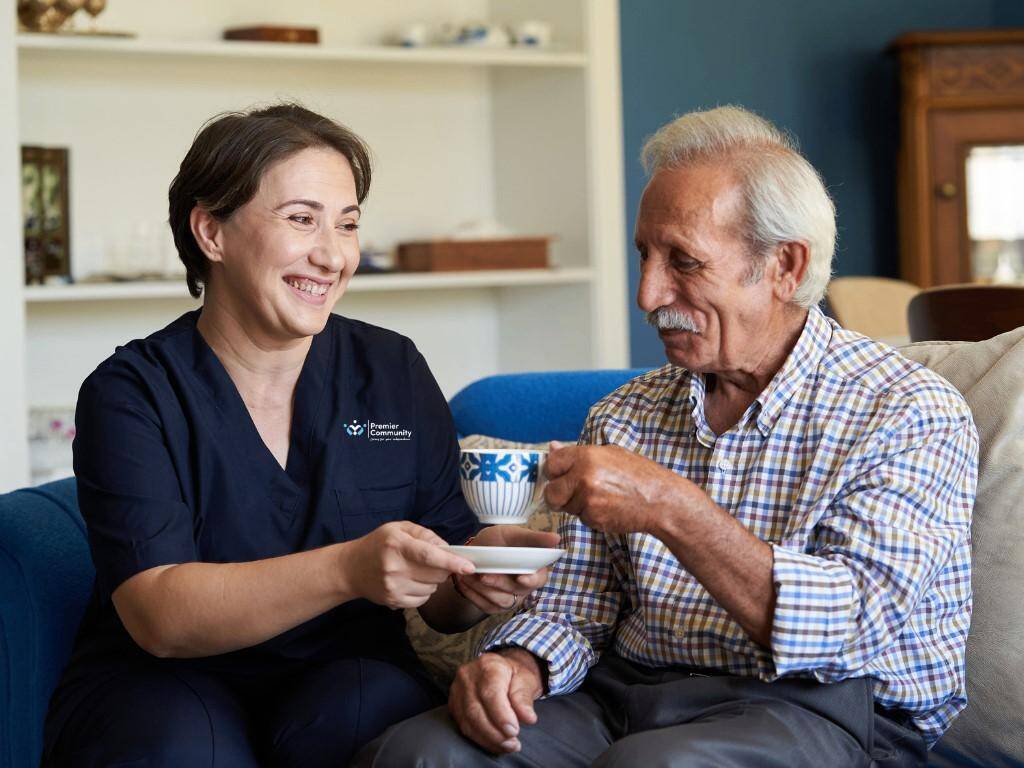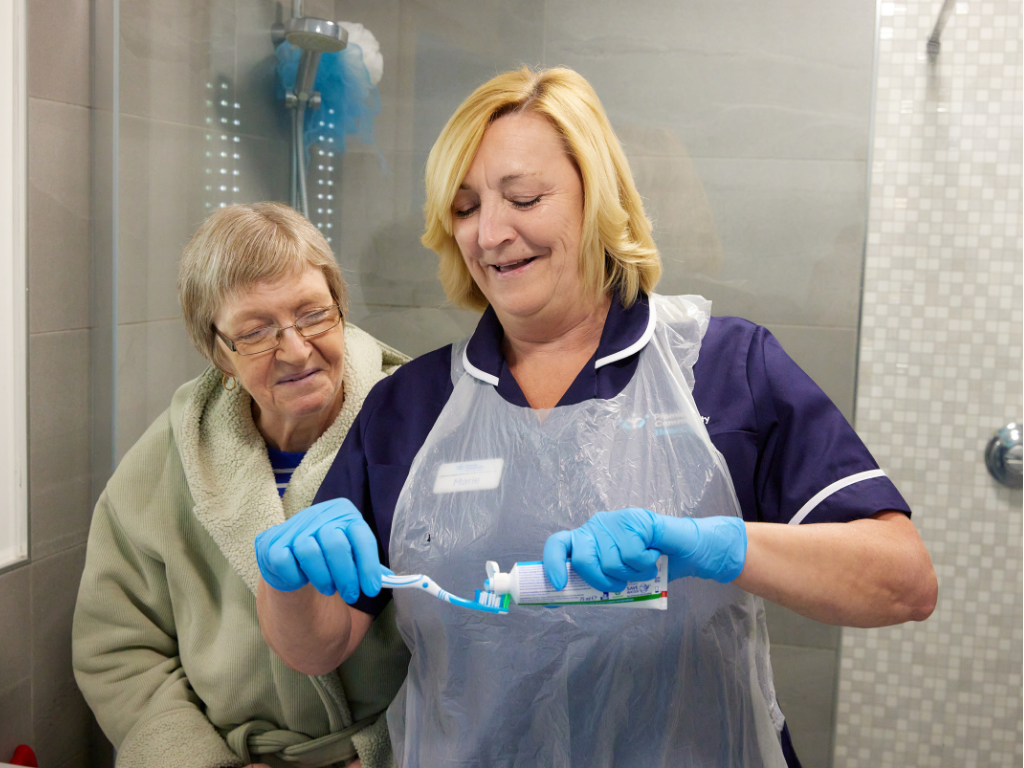With over 27 years of caring experience, we are often asked what it takes to be a good carer.
Of course, we look for numerous qualities, and while a solid foundation in training can help you start off on the right foot, there are some aspects of caring that just can’t be taught.
I caught up with the Premier Community recruitment team, including Troi, Molly and Olivia, to find out what qualities they look for in potential candidates.
Qualities that make a good carer
Empathy
Empathy is the ability to understand and share the feelings of others. It involves putting yourself in someone else’s shoes and seeing things from their perspective. When you have empathy, you can recognize and acknowledge the emotions that others are experiencing and respond in a caring and compassionate manner.
“Empathy allows you to connect with others on a deeper level, build trust and rapport, and provide emotional support. It is an essential skill for caregivers, healthcare professionals, and anyone who works with people in need,” explains Molly.
Patience
Carers need to have patience because they are responsible for the well-being of people who require extra care and support.
Often, these individuals may have physical or mental health conditions that make them more demanding or challenging to care for. As a result, carers may need to work through difficult situations, such as behavioural issues, medical emergencies, or communication barriers, with tact and empathy.
“Patience allows carers to remain calm and level-headed in high-pressure situations, which can help them make better decisions and provide more effective care,” adds Olivia.
Trustworthy
A carer needs to be trustworthy because they often have access to the personal space, belongings, and sensitive information of the person they are caring for.
“As representatives of Premier Community, our carers must act with integrity, honesty, and reliability and respect the privacy and dignity of the individual,” notes Troi.
Respectful
Respectful behaviour promotes trust and positive relationships between the carer and the person receiving care. It also helps maintain the dignity and self-esteem of the person receiving care and the carer themselves.
Olivia tells us: “Being respectful also means being mindful of cultural differences, individual preferences, and personal boundaries. Of course, you can still connect with the service user; sharing a joke or finding some common ground is a great way to build trust.”
Observant
Carers who are observant are better placed to notice changes in the physical, mental, and emotional health of the person they care for.
“Carers can identify potential issues before they become more serious by paying close attention to the person’s behaviour, expressions, and body language,” says Molly.
“For example, if a person suddenly begins to lose weight, the carer may be able to identify that they are not eating enough and can take steps to address the issue. Similarly, if a person seems more withdrawn than usual, the carer may be able to identify that they are feeling lonely or depressed and can provide emotional support.”
Observation is an essential skill for carers, as it helps them provide more effective care and support and can help prevent health problems from escalating.
Reliability
Reliability is important for a carer because someone who needs care depends on their caregiver for assistance with daily tasks.
“A reliable carer shows up on time, consistently provides the necessary care and support, and can be trusted to do what they say they will do,” explains Olivia.
“If a carer isn’t reliable, it can cause uncertainty and anxiety for the person who needs care and also affects the morale of the rest of the care team, who may be called in at the last minute to provide cover.”
Passionate
“Being passionate about caring is important for several reasons,” Troi says.
“Firstly, it helps you stay motivated and engaged in your work, which can lead to higher job satisfaction.
“When you enjoy what you do, you are more likely to put in the effort required to excel at your job, leading to greater success and recognition from your peers and superiors. Additionally, passion can inspire creativity and innovation, as you are more likely to approach problems with an open mind and a willingness to try new things.”
Ultimately, being passionate about your job can lead to a more fulfilling and rewarding career, both personally and professionally.
Excellent Communication Skills
Good communication skills are essential for carers as they play a vital role in supporting and caring for individuals.
Molly explains further: “Effective communication can help build trust, establish a positive relationship between the carer and the individual receiving care, and ensure that the individual’s needs are met.”
Carers with good communication skills can convey information clearly and concisely, listen actively to the individual’s concerns, and respond with empathy and compassion.
They can also communicate effectively with other healthcare professionals, such as doctors and nurses, to ensure the individual receives the best possible care.
Training
Whilst qualifications and previous experience aren’t necessary to join our care team, our recruiters will assess the qualities highlighted above to see if you have what it takes to be a good carer.
Once you’ve made it through the interview stage and are offered a position within the care team, we have a comprehensive online training programme covering administering medication, providing personal care, and responding to emergencies, which must be completed before our in-house training days.
If our trainers are happy with your progress and confidence levels, you will be assigned some shadowing shifts in the community to help reinforce this knowledge and understand how different situations may occur in the real world.










